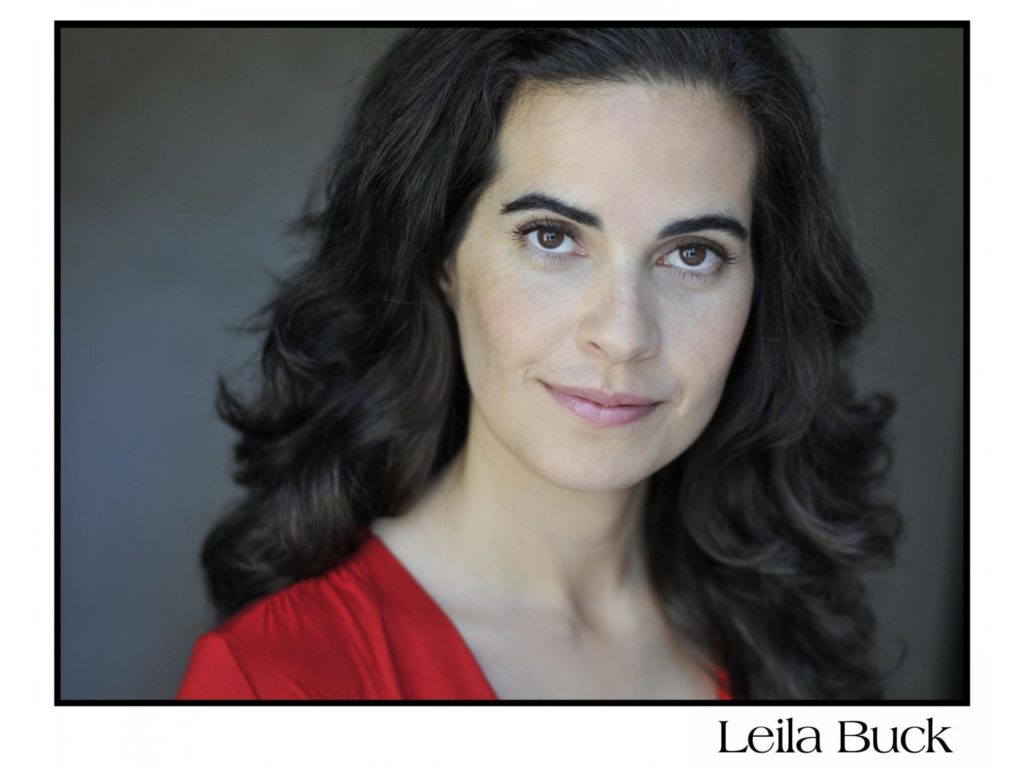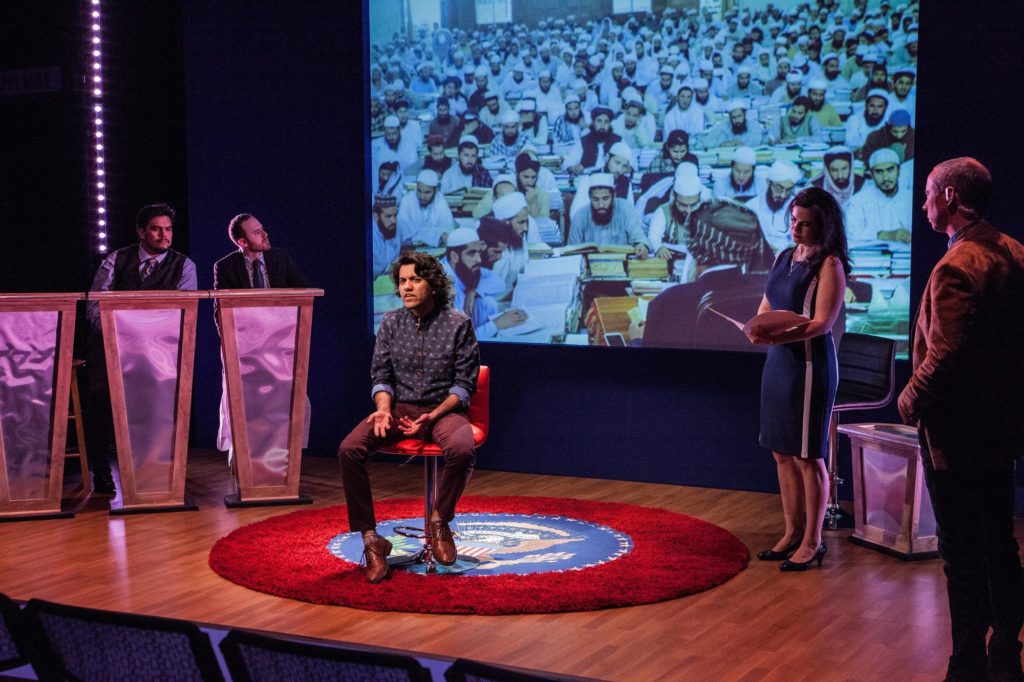
Biography
Leila Buck is a Lebanese American playwright actor, facilitator and educator. She has written numerous plays and has taught in more than 20 Arab and European countries and throughout the US. Some of her key plays include American Dreams, In the Crossing, and Arabian Nights, Hkeelee: Talk to Me, Mix & Match, and 1001 Nights (A Retelling). Buck’s work has been widely produced and developed in theaters such as the Public Theater, Round House Theater, The Working Theater, Hartford Stage, Cleveland Public Theater, the New York Theater Workshop, and the BRIC Lab. She received her BA from Wesleyan University and her M.A. in Theatre for Cross Cultural Education from New York University, where she now teaches Participatory Performance and Civic Engagement and Creation and Representation in U.S. Theater. As the recipient of the Wesleyan University’s Doris Duke Foundation Building Bridges artist-in-residence grant, she dedicated much of her time to producing interactive work with students that would focus primarily on the misrepresentation of Muslims in the U.S., as is reflected in much of her work. She is the recipient of the Edgar Beckham Social Justice Award (2015), the 2020 Fox Foundation Resident Actor Fellow, the Barrymore Award (at Wilma Theater) recipient, Special Jury Prize from Middle Eastern American Grant.
Career Highlight
Leila Buck’s first play, ISite (1999), is an award-winning one-woman show about growing up between the U.S. and the Arab world. For over ten years the play has toured the U.S., Europe and China and has been published in Four Arab American Plays (McFarland Press).
American Dreams
- Breakdown:
- 1M Indian, 1M White, 1M Palestinian/Irish, 1M Latino, 1W Lebanese American, 2W African American
- Synopsis:
- American Dreams is an interactive play in the form of a game show where the audience decides the outcome of the plot. The show presents the backgrounds of three immigrants hoping to become citizens of the United States. As they proceed through the gameshow, each contestant is quizzed on American trivia, asked about his own “American dream”, tested on his talents, and finally are put on a “hot seat” to answer hot button questions about their pasts. In the end, the audience chooses a winner, who is then awarded citizenship to the “greatest country on earth.”
- Development/Production History:
- 2016 – 1st developmental reading at Queens College
- 2017 – Rough Draft Festival at LaGuardia PAC
- 2017 – Kilroy’s List Honorable Mention
- 2018 – World Premiere at Cleveland Public Theatre
- 2020 – JKW Foundation support to retool as an interactive online show
- 2020 – National Online Tour
- 2021 – Nominated for DRAMA LEAGUE AWARD – Outstanding Interactive Theatre
- American Dreams is available to purchase through the playwright.
- Photos:




- Plays
- ISite, 1999
- In the Crossing, 2006
- Hkeelee: Talk to Me, 2016
- American Dreams, 2018
- Bibliography
- Vincentelli, Elisabeth. “‘American Dreams’ Review: In This Game, Citizenship Is the Prize.” The New York Times, 2020. Accessed 2022.
- Wren, Celia. The Audience Helps Decide the Outcome in This Zoom Play about Immigration, 2020. Accessed 2022.
- Gans, Andrew. “Working Theater Partners with 9 Theatres around the Country on American Dreams.” Playbill, 2020.
- “Stay Connected, Informed, and Inspired.” Audible.com.
- Michael, Najjar. “Ta Department of Theatre Arts.” Professor Michael Najjar Publishes Anthology | Department of Theatre Arts, 2014.
- Web Resources
Reflection on Contribution to Anti-Racist Theatre
American Dreams blatantly draws attention to the difficult process of becoming a citizen in the United States. Not only do we see the extensive background check that is done on each potential candidate, but clear unfair questioning towards each contestant is extremely evident in “the hot seat” segment. The “hot seat” is essentially just a glorified interrogation process used to expose the contestants. They are put in uncomfortable positions through a series of invasive questions and judged by their most questionable moments in their past. These questions are used as a tool to give the audience less reason to feel sympathetic when two of the contestants are not chosen to receive citizenship.
Leila Buck uses the gameshow hosts’ subtle interjections to highlight the inherent prejudice in the system directed towards immigrants looking to become citizens. Their commentary starts out quite subtle but increases as the game show continues. For example, when Adil is making the food for his talent segment, he uses a metaphor, saying “lemon is our secret weapon-” (31). Sherry then quickly interjects with “–ingredient!” (31). Any potentially loaded or triggering words or phrases the hosts try to cover up immediately. This recurrence draws attention towards the intrinsic racism by automatically associating trigger words like “gun” or “weapon” with someone of Middle Eastern descent. Buck underscores this emphasis very precisely, and instead of telling the audience her antiracist message, she powerfully shows them.
Compiled by Grace Thomas. Film, Television, and Theatre. Class of 2022.